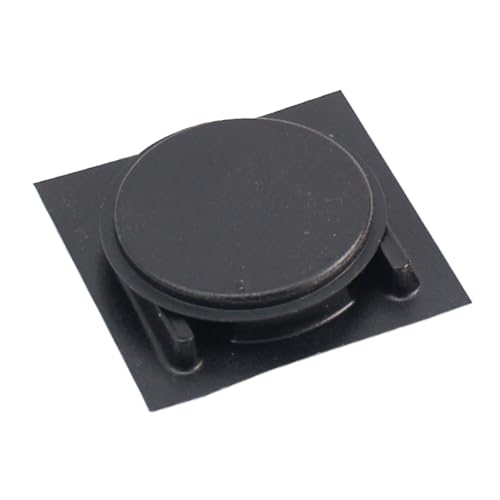Have you ever noticed pesky ants making their home under your pavers? It’s a common issue that can be quite frustrating to deal with. But fret not, we’ve got you covered! In this article, we’ll share some effective tips on how to bid farewell to those unwanted ant colonies lurking beneath your outdoor surfaces.

Ants under pavers can not only be a nuisance but also potentially cause damage over time if left unchecked. So, it’s essential to address this problem promptly. With our simple yet practical solutions, you’ll be able to reclaim your outdoor space from these tiny intruders and ensure a pest-free environment for your pavers.
Understanding Ant Infestations Under Pavers
As landscape designers, we encounter the challenge of ant infestations under pavers frequently. Understanding why ants are drawn to these spaces and recognizing the common types found beneath pavers is crucial in effectively addressing this issue.
The Attraction: Why Ants Love Pavers
Ants are naturally attracted to pavers for various reasons. Pavers provide ants with shelter, warmth, and protection from predators, making them an ideal nesting ground. The small spaces between pavers also offer ants easy access to outdoor environments and potential food sources, such as crumbs or food residues. Additionally, the moisture retained by pavers after rainfall creates a comfortable environment for ants to thrive.
To deter ants from nesting under pavers, it’s essential to eliminate these attractive features that draw them in. By understanding what makes pavers appealing to ants, we can implement effective strategies to make these spaces less inviting for infestation.
Common Types of Ants Found Under Pavers
Several ant species are commonly found nesting under pavers, each with unique characteristics and behaviors. Among the most prevalent are pavement ants, which construct their colonies beneath pavers due to the sandy soil and protective environment they provide. Other species like Argentine ants and odorous house ants are also frequently observed under pavers, seeking shelter and proximity to food sources.
Identifying the specific ant species present under pavers can help determine the most suitable eradication methods. By recognizing the common types of ants that infest these spaces, we can tailor our approach to effectively eliminate ant colonies and prevent future infestations, ensuring the longevity and appearance of outdoor paver surfaces.
Identifying the Scale of the Problem
Signs of Ants Under Pavers
When inspecting outdoor spaces for ants under pavers, we look for various signs that indicate their presence. Common indicators include visible ant trails along the edges of pavers or between cracks. Additionally, observing small piles of excavated soil near the pavers signifies ant nesting activity. By recognizing these signs early on, we can address the issue promptly and prevent further infestation.
Assessing the Extent of the Infestation
To determine the severity of the ant infestation under pavers, we conduct a thorough assessment of the area. We check multiple paver locations to gauge the spread of ant colonies. By observing the density of ant populations and the extent of tunneling, we can assess the scale of the infestation accurately. This assessment guides us in selecting the most effective eradication methods tailored to the specific needs of the site.
Natural and Home Remedies
Boiling Water Technique
When dealing with ant infestations under pavers, one effective natural remedy we often recommend is the boiling water technique. It’s a simple yet powerful method that can help eliminate ants without using any harmful chemicals. By pouring boiling water directly into ant nests or along ant trails under your pavers, we can swiftly disrupt their colonies and discourage further nesting in the area.
Vinegar and Lemon Juice Solutions
Another eco-friendly approach we use as landscape designers to combat ants under pavers is creating vinegar and lemon juice solutions. The strong scent of vinegar disrupts ants’ pheromone trails, making it difficult for them to navigate, while the acidity of lemon juice acts as a natural repellent. By spraying this solution in affected areas, we can deter ants and prevent them from establishing colonies beneath your pavers.
Diatomaceous Earth for Ant Control
Diatomaceous Earth is a natural and safe solution we often employ for ant control under pavers. This powdery substance is derived from fossilized algae and works by puncturing the exoskeleton of ants, leading to dehydration and eventual death. As landscape designers, we recommend spreading a thin layer of Diatomaceous Earth in ant-infested areas to create a barrier that effectively controls ant populations without posing any harm to plants, pets, or the environment.
Chemical Ant Control Strategies
As landscape designers, when facing persistent ant issues under pavers, we understand the need for effective chemical ant control strategies. While natural remedies are preferred, sometimes resorting to chemicals becomes necessary to tackle severe infestations. Here are some chemical ant control methods that can help combat ants under pavers efficiently:
Insecticide Sprays and Powders
When natural remedies prove insufficient, insecticide sprays and powders can be a potent solution for eliminating ants under pavers. These products contain active ingredients specifically designed to target and eradicate ant colonies. By applying insecticide sprays or dusts directly into ant entry points or around the paver edges, we can effectively eliminate nests and disrupt ant trails.
Bait Stations and Gels
Another effective method for chemical ant control is the use of bait stations and gels. These products work by attracting ants to consume the toxic bait, which they then carry back to the colony, ultimately leading to its eradication. Placing bait stations strategically around pavers or applying ant gel along ant trails can help us target and eliminate ant populations effectively.
Safety Precautions When Using Chemicals
It’s crucial to prioritize safety when employing chemical ant control strategies under pavers. Always follow the manufacturer’s instructions carefully when using insecticide sprays, powders, bait stations, or gels. Wear appropriate protective gear such as gloves and masks to prevent exposure to harmful chemicals. Additionally, ensure that any chemical products used are pet-friendly and environmentally safe to minimize any adverse effects on plants, pets, or the surrounding ecosystem.
By incorporating these chemical ant control strategies into our pest management protocols, we can effectively combat ant infestations under pavers while prioritizing the safety of our clients’ outdoor spaces and the environment.
Preventive Measures to Keep Ants Away
As landscape designers, we understand the importance of maintaining paver integrity to deter ants effectively. Here are some key preventive measures to consider:
Maintaining Paver Integrity
- Sealing Cracks: One of the essential steps for preventing ant infestations under pavers is sealing any cracks or gaps where ants can enter. We recommend using a suitable sealant to close off these entry points effectively.
- Proper Installation: Ensuring that pavers are installed correctly can also help in keeping ants away. By following proper installation techniques and guidelines, you can minimize the chances of ant colonization beneath the pavers.
- Regular Inspections: Conducting regular inspections of the paver area is crucial. By monitoring for any signs of ant activity early on, we can address potential issues promptly before they escalate.
Landscaping Tips to Deter Ants
- Planting Natural Ant Repellents: Incorporating plants known for deterring ants can be a natural and aesthetically pleasing way to keep ants at bay. Plants like mint, lavender, and marigolds are known for their ant-repelling properties.
- Creating a Barrier: Implementing a barrier around the paver area can help prevent ants from accessing the space. This barrier can be made of materials such as gravel, sand, or diatomaceous earth, which ants are less likely to cross.
- Reducing Moisture: Ants are attracted to moisture, so ensuring proper drainage around pavers is essential. By maintaining good water flow and addressing any water pooling issues, we can make the area less inviting to ants.
- Removing Food Sources: Keeping the paver area clean and free of food crumbs or spills is crucial in deterring ants. Regularly sweep and clean the pavers to eliminate potential food sources that may attract ants.
- Monitoring Ant Activity: Regularly monitoring for ant trails or nests under pavers is key to catching infestations early. By staying vigilant and addressing any signs of ant activity promptly, we can prevent colonies from establishing themselves.
- Maintaining Outdoor Spaces: Overall, maintaining a clean and well-kept outdoor space is essential for preventing ant infestations. Regular upkeep, including trimming vegetation and ensuring proper sanitation, can go a long way in keeping ants away from pavers.
By following these preventive measures and staying proactive in our approach, we can effectively deter ants from nesting under pavers and maintain a pest-free outdoor environment.
« Unlock the Secrets: Laying Pavers Over Dirt Made Easy! Expert Tips Inside Unlock the Ultimate Secret to Lifetime Warranty on Your Rinox Pavers »
Professional Pest Control Options
As landscape designers, we understand the importance of maintaining a pest-free outdoor environment under pavers. While DIY methods can be effective, sometimes it’s necessary to seek assistance from professional pest control services for more challenging ant infestations. Here are some insights into when it’s best to call the experts and what you can expect from professional ant removal services.
When to Call the Experts
When our eco-friendly and chemical control strategies haven’t been successful in eradicating ant colonies under pavers, it might be time to consider professional intervention. Here are some scenarios where it’s advisable to seek the expertise of pest control professionals:
- Extensive Infestations: If the ant colonies under the pavers are large or widespread, professional help can ensure thorough eradication.
- Persistent Ant Activity: Constant ant activity despite repeated DIY treatments may indicate a more significant underlying issue that requires professional evaluation.
- Structural Damage: Ant infestations causing damage to the pavers or nearby structures demand immediate attention from professionals to prevent further deterioration.
What to Expect From Professional Ant Removal Services
Professional ant removal services offer expertise and specialized tools to effectively address ant infestations under pavers. Here’s what you can expect when engaging professional pest control services for ant removal:
- Initial Inspection: Pest control professionals will conduct a comprehensive inspection to identify the extent of the ant infestation and determine the most suitable treatment plan.
- Customized Treatment: Based on the inspection findings, professionals will customize a targeted treatment plan to eliminate the ant colonies under the pavers efficiently.
- Safe and Effective Techniques: Utilizing industry-approved methods and products, professionals ensure the removal of ants while prioritizing the safety of your outdoor space.
- Follow-Up Services: Professional pest control services often include follow-up visits to monitor the effectiveness of the treatment and address any residual ant activity.
- Preventive Recommendations: In addition to removal, experts may provide recommendations on preventive measures to deter future ant infestations and maintain a pest-free environment.
By knowing when to seek professional help and understanding what to expect from professional ant removal services, we can address challenging ant infestations under pavers effectively, ensuring the longevity and beauty of our outdoor spaces.
Conclusion
In our journey to tackle ant invasions under pavers, we’ve explored eco-friendly solutions, preventive strategies, and the option of professional pest control services. By sealing cracks, ensuring proper installation, and managing moisture, we can deter ants from nesting beneath our outdoor spaces. When faced with persistent ant problems, enlisting the expertise of pest control professionals can provide tailored solutions and long-term relief. Their comprehensive inspections, customized treatments, and ongoing support can effectively eliminate ant colonies and safeguard our paver areas. Remember, a proactive approach coupled with expert assistance can help us enjoy a pest-free outdoor haven.














